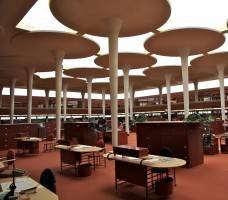June 3, 2015
IT firms hold TechNorth digital hub in higher regard than TechCity
 TechNorth, the Manchester based technology hothouse devised as a regional counterbalance to London, is held in higher regard than the capital’s flagship TechCity development, according to research from recruitment firm Robert Half. The study of IT decision makers across the UK claims that the vast majority would prioritise working with Northern firms over their London counterparts, with 87 percent either ‘highly likely’ or ‘somewhat likely’ to place work with IT businesses in the TechNorth hub rather than those in TechCity London given the choice. The figure is 100 percent for IT leaders based in the North and to 95 percent for those in Scotland. More surprisingly, 80 percent of those based London and the South East said they would prioritise TechNorth, as did 75 percent in the South West and Wales.
TechNorth, the Manchester based technology hothouse devised as a regional counterbalance to London, is held in higher regard than the capital’s flagship TechCity development, according to research from recruitment firm Robert Half. The study of IT decision makers across the UK claims that the vast majority would prioritise working with Northern firms over their London counterparts, with 87 percent either ‘highly likely’ or ‘somewhat likely’ to place work with IT businesses in the TechNorth hub rather than those in TechCity London given the choice. The figure is 100 percent for IT leaders based in the North and to 95 percent for those in Scotland. More surprisingly, 80 percent of those based London and the South East said they would prioritise TechNorth, as did 75 percent in the South West and Wales.


































June 2, 2015
Five of the most noticeable ways your office has got it in for you
by Justin Miller • Comment, Furniture, Lighting, Wellbeing, Workplace design
(more…)